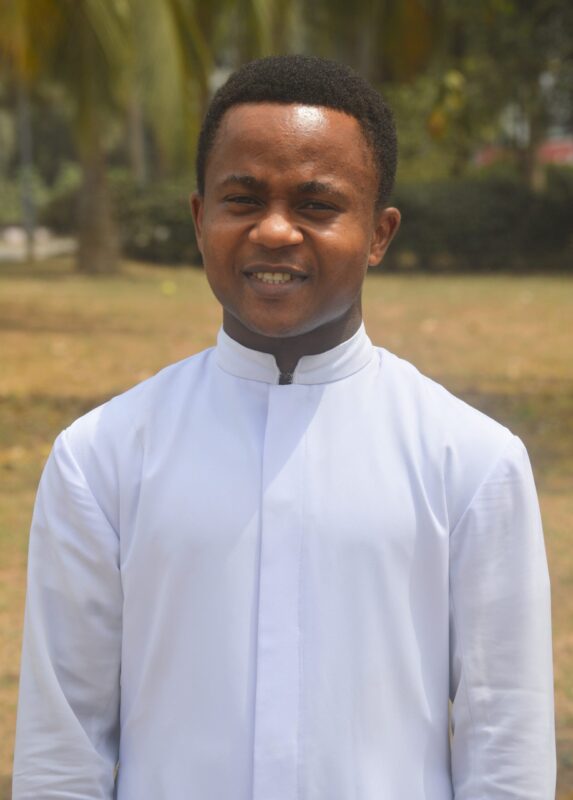Africa
Nigeria @ 64: A Sobering Reality, by Adeleke Oluwaseyi James

It is undeniable that those who could read the signs saw this coming well before last year’s general elections. Yet, despite the foresight of many well-meaning and educated Nigerians, they were unable to stem the tide. While some remained silent, others tried to rally their fellow citizens, urging them to rise above religious sentiments, cultural and tribal biases, prejudices, and bigotry before casting their votes. A few months ago, I posted, “Lord, save us! Lord, hear us! Lord, protect your people from harm and oppression.” Some interpreted this as a reflection of my personal struggles. In part, they were right—it’s my own experience of living in Nigeria. But my experience is only a fraction of what countless others endure. The suffering I’ve witnessed recently, especially in remote areas of Ibadan, is heartbreaking. Nigeria has become a place where survival is a daily struggle for the weak, the vulnerable, the underprivileged, and those with no one to support them.
As I write this, I feel a sense of shame and frustration. Nigeria is often called a joke, but there is nothing funny about it anymore. Our citizens, not the government, are the punchline. I use the term “educated” with hesitation because, in Nigeria, education often fails to produce people capable of sound judgment or practical decision-making. We have too many “educated illiterates”—people who may have formal education but lack the ability to navigate real-life challenges. This gap between education and practical literacy is a national disgrace. How can we hope for change when so many “educated” people believe that this government will solve our pressing issues? The truly enlightened know that the choices made by our leaders will only deepen our poverty, even in a land rich with resources.
It’s absurd that an entire nation is held hostage by a single commodity—oil. While other nations have used their natural resources to fuel economic growth, our oil has become a curse. Nigeria is collapsing under the weight of ignorance, corruption, impunity, and a flagrant disregard for the rule of law. Moral decay is rampant, especially among the ruling elite. Yes, the citizens have their share of responsibility, but our leaders bear the lion’s share of the blame. They hold a greater responsibility for our collective misery, as their actions have fostered a culture where corruption, irresponsibility, and backwardness have become normalized.
These corrosive values are now being passed down to the next generation. Children are growing up in a society where dishonesty, greed, and exploitation are the accepted ways of life. How much longer must we endure this? We need a new generation of leaders who are selfless, visionary, and committed to real progress. Our country needs leaders who can turn our dreams into reality.
The cost of living has skyrocketed. Filling up a car now costs over ₦50,000—a sum that once covered the entire month. The price of everything has surged alongside petrol. Senators joke about how the poor “must be allowed to breathe,” but their laughter rings hollow. It’s a cruel irony when a few individuals can pocket billions while millions struggle to afford basic necessities. This isn’t funny; it’s tragic. The poor are becoming poorer, and survival has become a privilege. Our legislators’ fat salaries cannot restore stability, nor can they lift the masses out of poverty.
In this nation, poverty has become the newest weapon. As prices soar, most Nigerians can barely afford a single meal. A 50-kilogram bag of rice now costs ₦90,000, and that’s just one part of the meal. Add in the cost of cooking, spices, and protein, and the price becomes unbearable. Transport costs have also spiraled, with many paying exorbitant sums just to get to work. Our economy is like a boat adrift at sea, battered by waves of inflation, all because we are tied to the price of petrol. This vicious cycle is reinforced by leaders whose selfishness and greed keep us shackled to their whims.
At times, I reflect on the lyrics of a song by Beautiful Nubia: “Eje ki a maa ba won ki won ma se wuwaikayimo o! Eje a ma aba won so ki won ma se wuwaibajemo o.” Roughly translated, it means, “Let us tell them to stop this wickedness. Let us tell them to stop these evil deeds.” We must stand firm against this culture of lies and death because it will never prevail.
In Nigeria, education, tribe, religion, and now poverty, are wielded as tools to suppress the people. Many believe this is by design—that our leaders wish to keep us impoverished, mentally subjugated, and spiritually adrift, so we cannot question them or hold them accountable. Our leaders have become the worst oppressors in Nigeria’s modern history. But let them know: this will not last forever. Behold the days are coming when justice shall prevail, and our oppressors are brought to account. Our God, the Almighty will visit His own people oppressed by the unjust leaders, in those days. It will seem like a dream when He raises men and women who are willing to make real sacrifices for their fellow citizens.
In the meantime, we must continue to demand change and seek leaders who are genuinely committed to the well-being of Nigeria. We need a movement led by rational, selfless, and progressive individuals who can steer Nigeria away from this destructive path and towards the prosperous future we all desire.
Adeleke Oluwaseyi James
A Student and Growing Writer (jamesadelek2014@gmail.com)

























